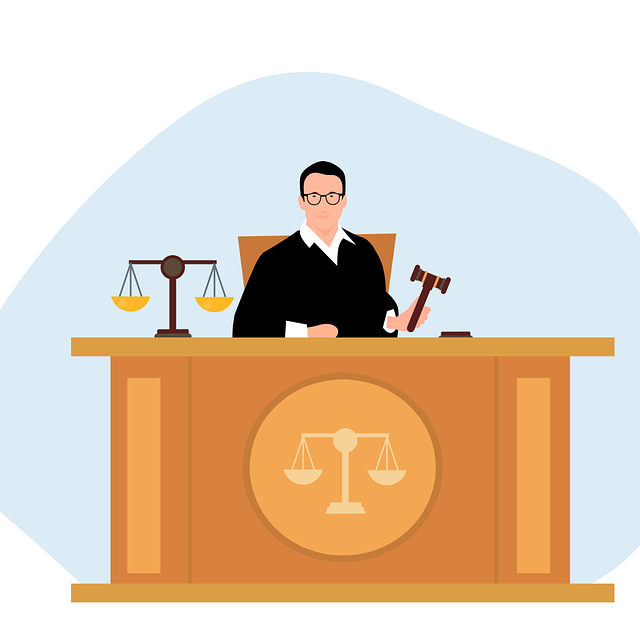Securing confidential client data in law offices requires a multi-layered approach using advanced law office equipment. This includes robust digital storage with encryption and limited access, physical safes, regular backups on secure servers or cloud platforms, biometric authentication, access control systems, detailed audit trails, VPNs for remote work, and tailored encryption software to maintain data integrity, comply with regulations, and build client trust.
In today’s digital age, securing confidential client data is paramount for law offices. Protecting sensitive information requires robust tools and systems that safeguard against unauthorized access and potential breaches. This article explores essential law office equipment designed to handle confidential data securely. From secure document storage solutions and encryption software to advanced access control systems and detailed audit trails, discover the must-haves for maintaining client privacy, even with remote work arrangements.
- Secure Document Storage Solutions
- Encryption Software for Data Protection
- Access Control Systems: Who Enters?
- Audit Trails: Tracking Client Interactions
- Remote Work: Secure Connections
Secure Document Storage Solutions
In the legal sector, handling confidential client data with utmost care is non-negotiable. This begins with secure document storage solutions that safeguard sensitive information from unauthorized access and potential breaches. Law offices should invest in robust digital storage systems that encrypt files, limit user permissions, and offer audit trails for every access or modification. These measures not only protect the integrity of documents but also comply with data privacy regulations.
Beyond digital security, physical document storage requires fireproof safes and locked filing cabinets. When selecting law office equipment, prioritize those with advanced locking mechanisms and secure shelving to prevent unauthorized entry. Regular backups of digital records on secure servers or cloud platforms further ensure that even in the event of a disaster, critical client data remains accessible and protected.
Encryption Software for Data Protection
In today’s digital era, law offices handle vast amounts of confidential client data, making robust security measures essential. Encryption software is a must-have tool for protecting sensitive information. This advanced technology transforms readable data into an unintelligible code, ensuring that even if unauthorized access is gained, the data remains secure and unusable.
Choosing the right encryption software tailored to legal practice needs is crucial. Look for solutions that offer robust end-to-end encryption, secure file sharing capabilities, and the ability to track and manage access permissions. Such features ensure that client data remains confidential throughout its lifecycle, from storage to transmission, adhering to strict legal requirements and maintaining trust in the law office equipment and practices.
Access Control Systems: Who Enters?
Access control systems are a crucial component in any professional setting, especially law offices dealing with sensitive client data. These systems ensure that only authorised personnel can access confidential information, safeguarding against unauthorised entry and potential data breaches. By implementing robust access controls, law office equipment like secure servers and document storage systems become part of a comprehensive security strategy.
Who enters your law office and the level of access they have directly impacts data security. Employing biometric authentication, smart cards, or keycards ensures that only verified individuals with appropriate permissions can gain entry to restricted areas. This prevents untrusted persons from accessing confidential client records, protecting not just the data but also maintaining the integrity of the legal practice.
Audit Trails: Tracking Client Interactions
In today’s digital era, maintaining comprehensive audit trails is more crucial than ever for law offices handling confidential client data. These detailed records serve as a critical component of data security and compliance, allowing legal professionals to track every interaction with clients. By utilizing specialized law office equipment designed for audit trail management, practices can ensure that all access to sensitive information is meticulously documented. This includes logging user activities, such as who accessed what files, when, and from where, providing a clear and irrefutable trail in the event of any disputes or compliance audits.
Effective audit trail systems enable law offices to quickly identify potential breaches, unauthorized access attempts, or even internal missteps that could compromise client privacy. With real-time tracking and comprehensive reporting capabilities, these tools empower legal teams to maintain the highest levels of data integrity, fostering trust among clients and ensuring regulatory compliance.
Remote Work: Secure Connections
With the rise of remote work, many law offices are now equipped to handle confidential client data from various locations. This shift necessitates a strong focus on secure connections to protect sensitive information. Using Virtual Private Networks (VPNs) and encrypted software is essential for establishing safe digital pathways. These tools ensure that data transmitted over public networks remains private and inaccessible to unauthorized parties, maintaining the integrity of client confidentiality.
Furthermore, remote workers must be trained in best practices for secure data handling, including strong password management and regular software updates. Law office equipment designed with advanced encryption protocols plays a pivotal role in safeguarding confidential documents and communications, fostering trust between clients and legal professionals, even in distributed work environments.
When it comes to handling confidential client data, investing in robust security measures is non-negotiable. By implementing secure document storage solutions, encryption software, strict access control systems, comprehensive audit trails, and ensuring remote work capabilities through secure connections, law offices can safeguard sensitive information and maintain client trust. Choosing the right law office equipment isn’t just about compliance; it’s about building a resilient foundation for your practice and protecting the future of your clients’ data.
